November 26, 2014 •
Special Election Anticipated after Death of DC Councilman Marion Barry
Councilman Marion Barry passed away on Sunday, November 23, 2014, at the age of 78. Barry served four terms as mayor before becoming a councilman. With his death leaving a vacancy on the council, the D.C. Board of Elections must […]
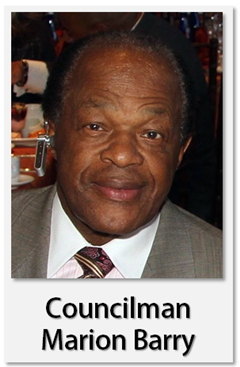 Councilman Marion Barry passed away on Sunday, November 23, 2014, at the age of 78. Barry served four terms as mayor before becoming a councilman.
Councilman Marion Barry passed away on Sunday, November 23, 2014, at the age of 78. Barry served four terms as mayor before becoming a councilman.
With his death leaving a vacancy on the council, the D.C. Board of Elections must schedule a special election between 70 and 174 days after the vacancy has been declared.
A special election to fill the vacancy is expected between early February and mid-May. The winner of the special election would serve the remainder of Barry’s term, which is approximately two years.
Photo of Marion Barry courtesy of dbking on Wikimedia Commons.
October 24, 2014 •
DC Election for Attorney General to Be Held Nov. 4
Washington, D.C. voters will elect their attorney general for the first time on November 4, 2014. Up until this year, the attorney general has been appointed by the mayor. In 2010, voters approved a charter amendment authorizing the first election […]
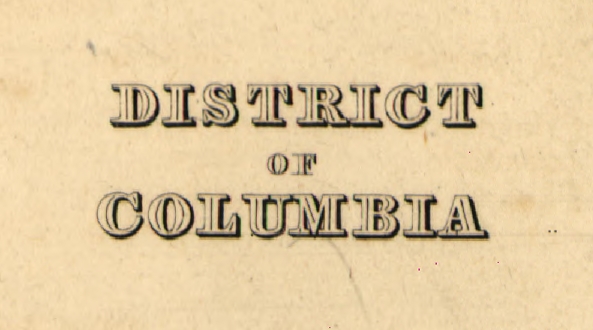 Washington, D.C. voters will elect their attorney general for the first time on November 4, 2014. Up until this year, the attorney general has been appointed by the mayor.
Washington, D.C. voters will elect their attorney general for the first time on November 4, 2014. Up until this year, the attorney general has been appointed by the mayor.
In 2010, voters approved a charter amendment authorizing the first election of the city’s attorney general and setting a primary election for April 2014. In late 2013, the council passed a law delaying the election from 2014 to 2018, fearing the city lacked the necessary preparation.
Paul Zukerberg, a candidate for attorney general, challenged the 2013 law in court. In June 2014, the Court of Appeals ruled an election must be held in 2014 unless it would not be practically possible for the D.C. Board of Elections to do so.
Following a directive by the Court of Appeals to set a date for the election, the D.C. Superior Court decided the election will be held on November 4, 2014, the same day as the mayoral election.
June 5, 2014 •
D.C. Election for Attorney General Likely in 2014
Washington, D.C. voters will have the chance to elect an attorney general in the upcoming months, thanks to a decision by the D.C. Court of Appeals. Currently, the attorney general is appointed by the mayor. In 2010, voters approved a […]
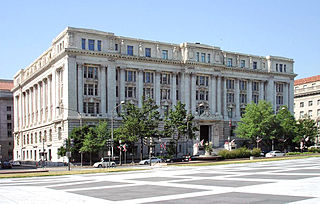 Washington, D.C. voters will have the chance to elect an attorney general in the upcoming months, thanks to a decision by the D.C. Court of Appeals. Currently, the attorney general is appointed by the mayor.
Washington, D.C. voters will have the chance to elect an attorney general in the upcoming months, thanks to a decision by the D.C. Court of Appeals. Currently, the attorney general is appointed by the mayor.
In 2010, voters approved a charter amendment authorizing the first election of the city’s attorney general and setting a primary election for April 2014. In late 2013, the council passed a law delaying the election from 2014 to 2018, fearing the city lacked the necessary preparation.
Paul Zukerberg, the only candidate for the city’s first attorney general race, challenged the 2013 law in court. On June 4, 2014, the Court of Appeals ruled an election must be held in 2014 unless it would not be practically possible for the D.C. Board of Elections to do so. The Court further noted the possibility of a 2015 election if a 2014 election is not possible.
Following a directive by the Court of Appeals to set a date for a special election in as few as 70 days, the D.C. Superior Court will now decide how soon the election must be held. Although the election is projected to be scheduled on November 4, 2014, the same day as the mayoral election, an election before November is also a possibility.
Photo of the John A. Wilson Building courtesy of Andrew Wiseman on Wikimedia Commons.
February 13, 2014 •
Washington, D.C. AG Race Still a Possibility for 2014
Whether Washington, D.C. voters will have the chance to elect an attorney general this year remains a hot topic on the D.C. Council floor. Currently, the attorney general is appointed by the mayor. In 2010, voters approved a charter amendment […]
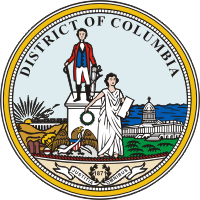
Whether Washington, D.C. voters will have the chance to elect an attorney general this year remains a hot topic on the D.C. Council floor. Currently, the attorney general is appointed by the mayor. In 2010, voters approved a charter amendment authorizing the first election of the city’s attorney general and setting a primary election for April of this year.
In late 2013, the council passed a law delaying the election from 2014 to 2018, fearing the city lacked the necessary preparation. Paul Zukerberg, the only candidate for the city’s first attorney general race, challenged the 2013 law in the District of Columbia Superior Court. Judge Laura Cordero denied Zukerberg’s motion for a preliminary injunction, stating that he would not suffer irreparable harm from the delay and therefore did not meet the standard to grant the injunction.
Upon the judge’s ruling, the council acted quickly to introduce a bill scheduling an election for attorney general in November 2014. The bill has sparked heated debate, both on the floor of the council and with current Attorney General Irvin Nathan. Nathan criticized the bill, stating it does not comport with the city charter. The bill would put the attorney general office on the November ballot without allowing for a primary election, thus circumventing the requirement of an election on a partisan basis as required by the 2010 charter amendment.
If the new bill passes the council, the possibility of a mayoral veto is likely, based on Nathan’s opposition to the measure. However, Council Chairman Phil Mendelson still plans to move the bill to passage, likely bringing it to a final vote in the next month.
January 24, 2014 •
DC Council Bill Would Disqualify Campaign Contributors from City Contracts
Phil Mendelson, the chairman of the Council of the District of Columbia, introduced a bill that would bar people who made political contributions from obtaining contracts or doing other business with the city. Mendelson said the motivation behind his bill […]

Phil Mendelson, the chairman of the Council of the District of Columbia, introduced a bill that would bar people who made political contributions from obtaining contracts or doing other business with the city.
Mendelson said the motivation behind his bill was to end the perception of pay-to-play in Washington, D.C.
December 18, 2013 •
D.C. City Council Officially Raises the Minimum Wage
The living wage bill officially passed through the D.C. City Council today, and is now on its way to Mayor Gray for signature. Mayor Gray has promised to sign the bill this time, a measure he initially rejected earlier this […]
 The living wage bill officially passed through the D.C. City Council today, and is now on its way to Mayor Gray for signature. Mayor Gray has promised to sign the bill this time, a measure he initially rejected earlier this year.
The living wage bill officially passed through the D.C. City Council today, and is now on its way to Mayor Gray for signature. Mayor Gray has promised to sign the bill this time, a measure he initially rejected earlier this year.
The bill will raise the minimum wage to $9.50 in July 2014, $10.50 the following year, and $11.50 by 2016.
The bill also provides for future increases tied to the Consumer Price Index.
Photo of the John A. Wilson Building by Andrew Wiseman in Wikimedia Commons.
December 5, 2013 •
D.C. City Council Unanimously Approves Minimum Wage Increase
The Washington, D.C. City Council unanimously approved a bill raising the city’s minimum wage to $11.50 per hour. The Council must hold a final vote on the bill and send it to Mayor Vincent C. Gray before it becomes law. […]
 The Washington, D.C. City Council unanimously approved a bill raising the city’s minimum wage to $11.50 per hour.
The Washington, D.C. City Council unanimously approved a bill raising the city’s minimum wage to $11.50 per hour.
The Council must hold a final vote on the bill and send it to Mayor Vincent C. Gray before it becomes law. The final vote will probably occur early next year.
If the measure passes, the new minimum wage will take effect in 2016, making it one of the highest minimum wages in the country.
December 4, 2013 •
DC City Council Unanimously Passes Campaign Finance Reform
The City Council in Washington, D.C. has unanimously approved a campaign finance reform bill. The new legislation includes provisions for electronic filing of campaign finance reports, mandatory training for treasurers of political committees, and prohibits entities besides corporations, namely LLCs, […]
 The City Council in Washington, D.C. has unanimously approved a campaign finance reform bill. The new legislation includes provisions for electronic filing of campaign finance reports, mandatory training for treasurers of political committees, and prohibits entities besides corporations, namely LLCs, from making political contributions.
The City Council in Washington, D.C. has unanimously approved a campaign finance reform bill. The new legislation includes provisions for electronic filing of campaign finance reports, mandatory training for treasurers of political committees, and prohibits entities besides corporations, namely LLCs, from making political contributions.
The bill now awaits signature by the Mayor. If signed, the bill will take effect in 2015.
Photo of the John A. Wilson Building couresty of Andrew Wiseman on Wikimedia Commons.
November 19, 2013 •
Topic of Living Wage Returns to DC City Council
The topic of a living wage in Washington, D.C. has been revived in the City Council. A new proposal would increase the DC minimum wage to $11.50 per hour by 2016, making the wage one of the highest in the […]
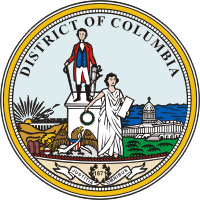 The topic of a living wage in Washington, D.C. has been revived in the City Council.
The topic of a living wage in Washington, D.C. has been revived in the City Council.
A new proposal would increase the DC minimum wage to $11.50 per hour by 2016, making the wage one of the highest in the country.
The Council could vote on the measure as early as December.
October 16, 2013 •
Attempt to Override Veto of DC Living Wage Bill Failed
Override fails by two votes
 The D.C. City Council failed to overturn a mayoral veto of The Large Retailer Accountability Act, a bill requiring large retailers with corporate sales of $1 billion or more to pay their employees a “living wage” of $12.50 per hour.
The D.C. City Council failed to overturn a mayoral veto of The Large Retailer Accountability Act, a bill requiring large retailers with corporate sales of $1 billion or more to pay their employees a “living wage” of $12.50 per hour.
Seven of the 13 city council members voted to support the override of the veto, which was two votes shy of the nine votes needed for the measure to pass.
April 24, 2013 •
Bonds Wins District of Columbia Special Election
Voters also vote to give district spending autonomy
 Voters in the District of Columbia participated in a special election Tuesday and chose a familiar face. Anita Bonds held off five challengers to win the council seat she currently occupies. Bonds was chosen to temporarily hold the at-large seat after Phil Mendelson became the council chairman.
Voters in the District of Columbia participated in a special election Tuesday and chose a familiar face. Anita Bonds held off five challengers to win the council seat she currently occupies. Bonds was chosen to temporarily hold the at-large seat after Phil Mendelson became the council chairman.
Bonds declared victory shortly after midnight and according to unofficial results collected 32 percent of the vote. Her closest competitor, Elissa Silverman garnered 28 percent of the vote.
Turnout was very low for the special election, which was the district’s second special election in the past three years. One voter said, “I didn’t know any of them. But I’m a Democrat. So I voted for – who was it? – Anita (Bonds).”
The voters also passed a ballot measure seeking to give the district autonomy over spending its tax dollars. The measure, which passed with more than 80 percent approval, would allow the district to spend its tax dollars without congressional approval.
The measure will become law unless the United States Congress passes a disapproval resolution and that resolution is also signed by President Obama. The measure is the latest in the long struggle for district citizens to break free from the leash of the federal government.
One voter said, “We can take care of ourselves.”
Photo of the John A. Wilson Building by Awiseman on Wikipedia.
December 6, 2012 •
Special Election Set for District of Columbia
D.C. to replace councilmember
 The District of Columbia Board of Elections has announced that a special election will take place on April 23, 2013.
The District of Columbia Board of Elections has announced that a special election will take place on April 23, 2013.
This special election will be held to fill the at-large D.C. council seat of Phil Mendelson.
August 29, 2012 •
D.C. Mayor Proposes Campaign Finance Reform
Public comment to be open until September 17th
 Mayor Vincent Gray and Attorney General Irvin Nathan have introduced a proposal for an overhaul of the city’s campaign finance laws. The proposal includes pay-to-pay provisions that will limit when contractors may contribute to public officials. It will also make electronic disclosure mandatory and increase the disclosures already in place. The proposal would also ban lobbyists from bundling political contributions.
Mayor Vincent Gray and Attorney General Irvin Nathan have introduced a proposal for an overhaul of the city’s campaign finance laws. The proposal includes pay-to-pay provisions that will limit when contractors may contribute to public officials. It will also make electronic disclosure mandatory and increase the disclosures already in place. The proposal would also ban lobbyists from bundling political contributions.
These proposed reforms come at a time when the district has been inflicted with a rash of campaign scandals, including one involving Mayor Gray’s campaign.
The proposal will now go through a public comment period until September 17th. At that point, the proposal will be formally sent to the district council.
Photo of the John A. Wilson Building by Awiseman on Wikipedia.
May 24, 2012 •
Government Ethics in the News
An investigation, charges, fines, and a house arrest in today’s ethics articles.
 Federal: “Group wants investigation of lobby shop after Owens’s Taiwan trip” by Mike Zapler in Politico.
Federal: “Group wants investigation of lobby shop after Owens’s Taiwan trip” by Mike Zapler in Politico.
District of Columbia: “Second Gray aide charged in campaign probe” by Tom Howell, Jr. in The Washington Times.
Missouri: “Already charged by feds, former Gov. Wilson fined by ethics cops, too” by Jake Wagman in the St. Louis Post-Dispatch.
Pennsylvania: “Veon’s ex-aide gets house arrest” by Brad Bumsted in the Pittsburgh Tribune-Review.
State and Federal Communications, Inc. provides research and consulting services for government relations professionals on lobbying laws, procurement lobbying laws, political contribution laws in the United States and Canada. Learn more by visiting stateandfed.com.


